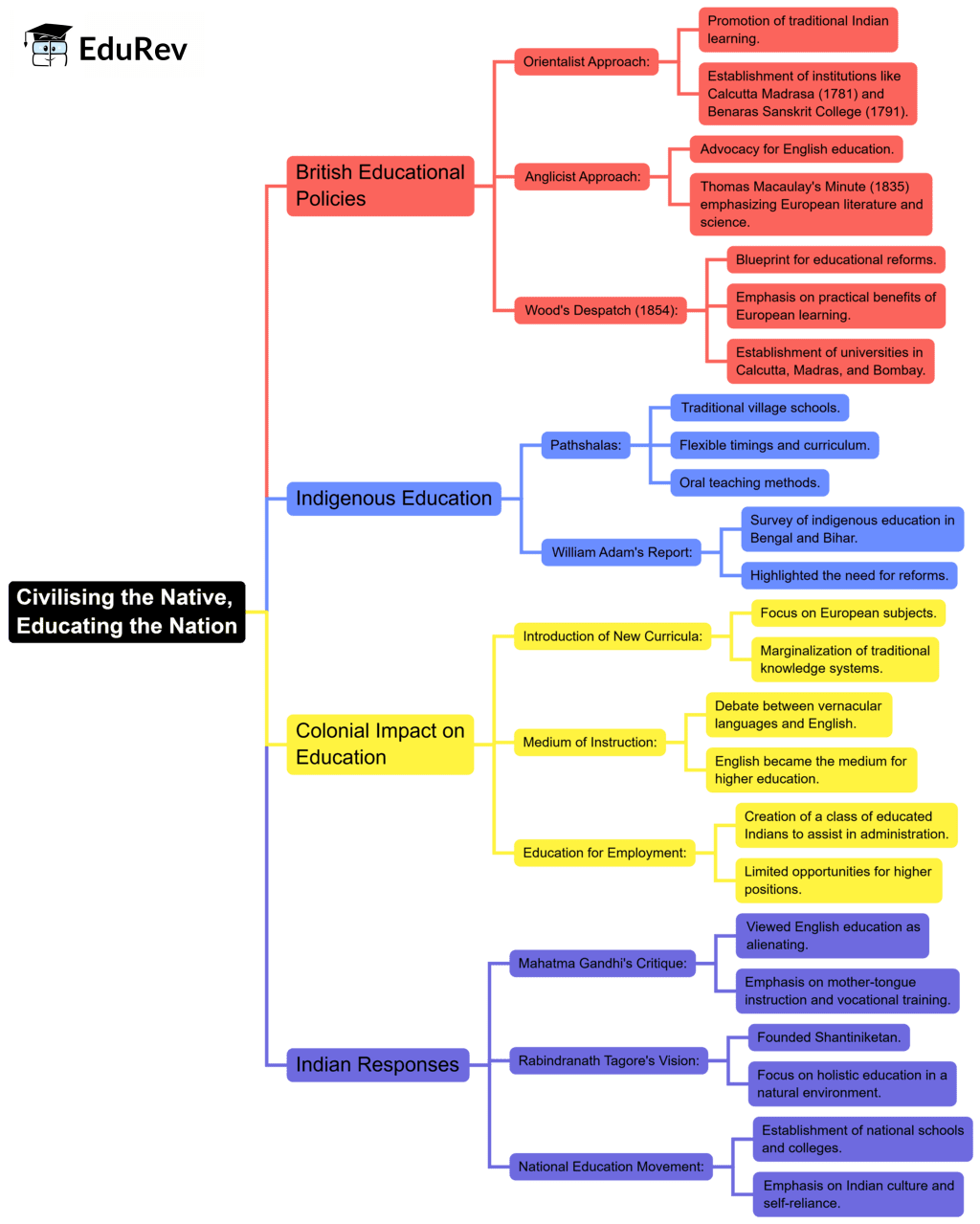UPSC Exam > UPSC Notes > Class 6 to 12 NCERT Mindmaps for UPSC Preparation > Mind Map: Civilising the Native, Educating the Nation
Mind Map: Civilising the Native, Educating the Nation | Class 6 to 12 NCERT Mindmaps for UPSC Preparation PDF Download

The document Mind Map: Civilising the Native, Educating the Nation | Class 6 to 12 NCERT Mindmaps for UPSC Preparation is a part of the UPSC Course Class 6 to 12 NCERT Mindmaps for UPSC Preparation.
All you need of UPSC at this link: UPSC
FAQs on Mind Map: Civilising the Native, Educating the Nation - Class 6 to 12 NCERT Mindmaps for UPSC Preparation
| 1. What is the meaning of "Civilising the Native, Educating the Nation"? |  |
Ans. "Civilising the Native, Educating the Nation" refers to a historical approach adopted by colonial powers to assimilate and transform indigenous populations by imposing their own cultural, social, and educational systems on them. It aimed to "civilize" the native population according to the norms and values of the colonizers while simultaneously educating them to serve the interests of the ruling nation.
| 2. How did the process of civilizing the native population take place? |  |
Ans. The process of civilizing the native population involved various strategies such as introducing formal education systems, imposing the language and cultural practices of the colonizers, implementing new laws and governance structures, and promoting religious conversion. It aimed to replace indigenous customs and traditions with those of the ruling nation, effectively erasing or marginalizing the native culture.
| 3. What were the motivations behind civilizing the native population? |  |
Ans. The motivations behind civilizing the native population were primarily driven by the colonial powers' desire to maintain control and exploit the resources of the colonies. By transforming the native population, they aimed to create a docile and obedient workforce, facilitate economic exploitation, and establish political dominance. Additionally, the colonizers believed that their culture and values were superior, leading them to view the native population as "savages" in need of civilization.
| 4. How did the educational aspect of civilizing the native population contribute to the colonial agenda? |  |
Ans. The educational aspect of civilizing the native population played a crucial role in the colonial agenda. It served as a tool for indoctrination, teaching the native population the language, history, and values of the colonizers. This not only facilitated communication and control but also aimed to create a sense of loyalty and identification with the ruling nation. Additionally, the education system provided the necessary skills to serve the colonial administration and economic interests.
| 5. What were the long-term impacts of the civilizing mission on the native population? |  |
Ans. The long-term impacts of the civilizing mission on the native population were complex and varied. While it did lead to the spread of Western education and some socioeconomic advancements, it also resulted in the erosion of indigenous cultures, languages, and traditions. The imposition of foreign norms often led to the loss of identity, autonomy, and self-determination for many indigenous communities. The legacy of the civilizing mission continues to shape post-colonial societies, with ongoing debates about its consequences and the need for decolonization.
Related Searches

















